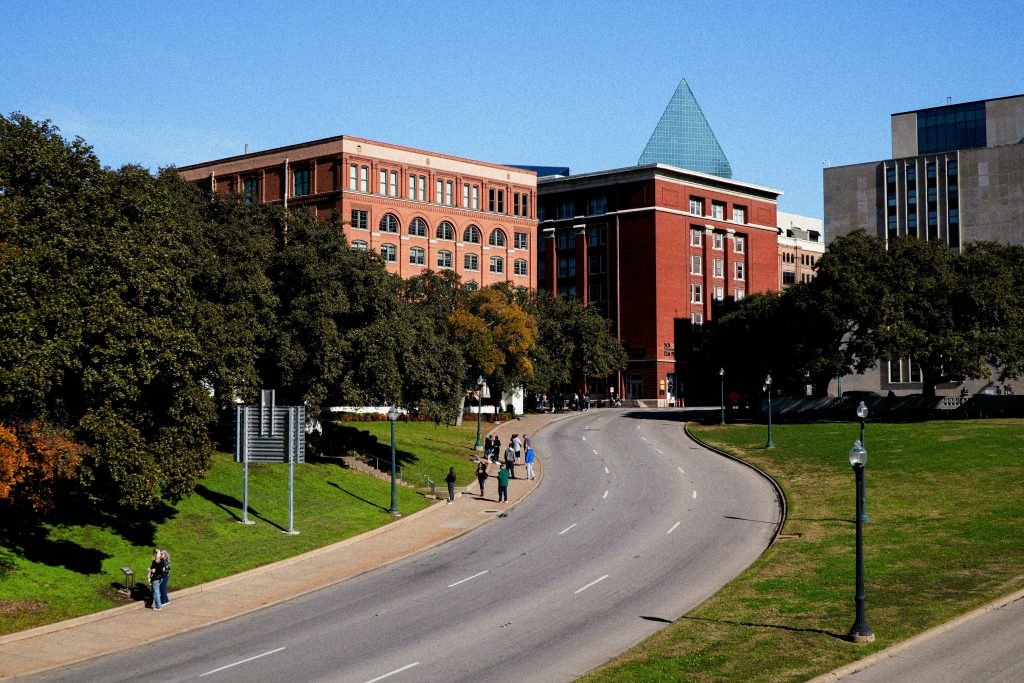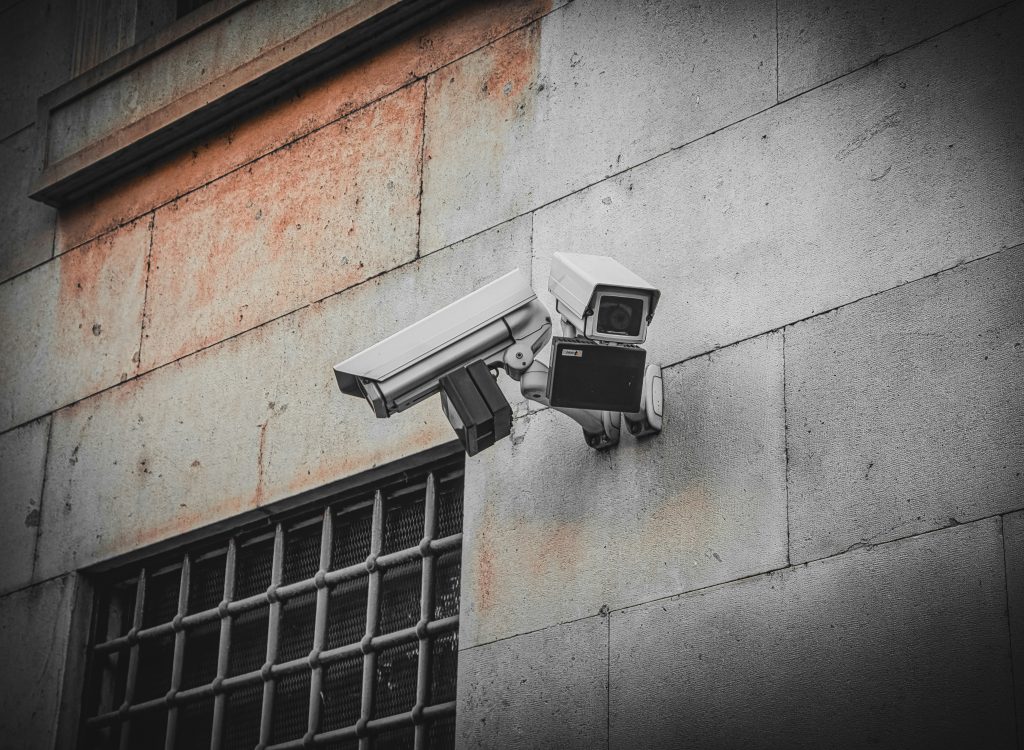Sheryl Crow Unplugs: A Symphony of Sustainability and Principled Protest
The electric hum of a Tesla once resonated with Sheryl Crow, a soundtrack to a greener future. But now, that hum has faded, replaced by the quiet satisfaction of principle. Crow, the voice behind anthems of independence and self-discovery, has publicly divested from her Tesla, not for reasons of performance or aesthetics, but as a potent symbol of her disagreement with Elon Musk’s actions and perceived influence on societal institutions. She’s not just selling a car; she’s selling an idea – the idea that individual choices, even seemingly small ones, can reverberate with larger meaning.
This isn’t simply a celebrity stunt. It’s a micro-level example of the growing tension between technological advancement and ethical responsibility. The rise of electric vehicles was once heralded as a universally positive step toward sustainability, a win-win for both consumers and the planet. But as companies like Tesla become increasingly intertwined with controversial figures and decisions, consumers are faced with a new dilemma: Can they embrace the technology while simultaneously rejecting the values associated with its creators?
Crow’s decision underscores this complex intersection. She’s not abandoning the concept of electric vehicles; she’s signaling that the source matters. She’s essentially saying, “I believe in the destination, but not if the journey compromises my values.” The proceeds from the sale of her Tesla will be donated to NPR, a public radio network she sees as vital in the pursuit of truth, especially given what she views as threats to its existence.
## The Ripple Effect: Beyond a Single Singer’s Statement
Crow’s action, while personal, taps into a larger cultural narrative of consumer activism. We are witnessing a shift from passive consumption to conscious consumption, where individuals are increasingly scrutinizing the ethical implications of their purchases. From boycotting fast fashion to supporting fair-trade coffee, consumers are using their wallets to express their values.
This trend is particularly relevant in the realm of environmentalism. As climate change intensifies, the pressure on companies to adopt sustainable practices is mounting. But it’s not enough to simply offer eco-friendly products; consumers also want to know that companies are operating with integrity, respecting human rights, and contributing to a more equitable world. When these expectations are not met, as Crow’s actions suggest, consumers are willing to make difficult choices, even if it means sacrificing convenience or personal preference.
Crow’s actions raise a profound question: In a world increasingly dominated by powerful individuals and corporations, what is the role of the individual in shaping a more just and sustainable future? Her answer, at least in this instance, is clear: Every decision matters. Every purchase is a statement. And every act of protest, no matter how small, can contribute to a larger chorus of change.
##### The Power of Symbolic Action
Beyond the monetary value, Crow’s decision resonates as a symbolic act. It is a reminder that even in a world saturated with information and noise, individual actions can cut through the clutter and spark meaningful conversations. By publicly severing ties with Tesla, she has amplified a discussion about the ethical responsibilities of tech giants, the importance of independent media, and the power of consumer activism.
##### A Call to Conscious Consumption
Ultimately, Sheryl Crow’s unplugging from Tesla is more than just a celebrity anecdote; it’s a microcosm of a larger societal shift. It’s a call to conscious consumption, a reminder that our choices have consequences, and that even the smallest act of protest can contribute to a more sustainable and equitable world. It’s a challenge to each of us to examine our own values and to align our purchasing decisions accordingly, even when it requires sacrifice. After all, the true sound of progress is not the electric hum of a car, but the resounding chorus of voices demanding a better future.
In the end, Crow’s actions serve as an inspiration, suggesting that even in a world grappling with immense and complex environmental challenges, individuals can and do have the power to drive change, one principled decision at a time.
Tags: Climate Change, Consumer Activism, Elon Musk, Environmentalism, Ethical Consumption, Medio Ambiente, Música, NPR, Protest, Sheryl Crow, Sostenibilidad, Sustainability, Tesla
Heated Exchange Erupts Between Reps. Mace and Crockett in House Hearing
A contentious exchange between Representatives Nancy Mace (R-S.C.) and Jasmine Crockett (D-Texas) escalated during a House hearing, highlighting deep partisan divisions. The clash, which involved challenges and heated rhetoric, centered around issues debated in the Oversight and Government Reform Committee, including discussions on Elon Musk, civil rights, trans women, and the implementation of gender-neutral restrooms. Mace argued that cisgender women were at risk due to gender-neutral bathroom policies, leading to further conflict. The intense disagreement reached a point where Mace reportedly challenged Crockett, suggesting they “take it outside,” as described by multiple news outlets. The hearing became so disruptive that Chairman James Comer had to intervene to restore order amidst shouts of “Order! Order! Order!”
Tags: civil rights, Elon Musk, Gender-Neutral Restrooms, House Oversight Committee, Jasmine Crockett, Nancy Mace, Partisan Divide, Political Clash, Political Conflict
馬斯克宣布SpaceX總部正式遷至德克薩斯州Starbase
## 馬斯克的決策背後的戰略考量
在12月12日的公開聲明中,SpaceX行政總裁馬斯克(Elon Musk)宣布,公司的總部將正式遷至德克薩斯州的Starbase。這一決定不僅是公司發展的一個新里程碑,也反映了馬斯克對未來航天探索的宏大藍圖。
## 為何選擇德克薩斯州?
馬斯克指出,德克薩斯州的獨特地理位置以及當地政府對航天產業的支持,讓SpaceX能夠更有效地進行火箭發射和相關業務。這裡的開放空間和低人口密度,為各類實驗和發射活動提供了理想環境。更重要的是,德克薩斯州的稅收政策對企業發展相當友好,這無疑對SpaceX的長期增長具有重要意義。
## 對當地經濟的影響
此次總部遷移將為德克薩斯州帶來大量的就業機會,並促進當地經濟的增長。馬斯克表示,隨著SpaceX的擴張,將會需要更多的人才,並且會吸引更多的技術型企業進駐,形成一個航天產業的聚集效應。
## SpaceX的未來計劃
在未來的計劃中,SpaceX將繼續致力於火星探索和衛星網絡的佈局。馬斯克提到,Starbase將成為公司的重要基地,支持各類型的火箭發射,包括載人航天任務及商業衛星發射。這一系列舉措不僅展示了SpaceX的技術實力,也為全球航天事業的發展作出貢獻。
## 總結
隨著SpaceX的總部落戶德克薩斯州,馬斯克再次展示了他的前瞻性思維和對航天事業的堅持。這不僅是企業的戰略調整,更是美國航天史上重要的一步。未來,隨著SpaceX的發展,我們將見證更多令人興奮的航天探索。
讓我們拭目以待,期待馬斯克和他的團隊在未來的冒險中帶來更多驚喜!
Tags: Elon Musk, SpaceX, 德克薩斯州, 航天, 高科技
New Department of Government Efficiency Aims to Revolutionize Governance
In a bold move aimed at reshaping the landscape of governance, President-elect Donald Trump has unveiled the formation of the “Department of Government Efficiency” (DOGE). This innovative department is set to be co-led by tech titan Elon Musk and entrepreneur Vivek Ramaswamy, both known for their disruptive approaches in their respective fields. The announcement has sparked a wave of discussion regarding the potential implications for government operations and public services.
The core mission of DOGE is to streamline government processes, eliminate unnecessary regulations, and enhance the efficiency of public service delivery. As the nation grapples with the complexities of modern governance, the introduction of such a department could mark a significant pivot towards a more agile and responsive government structure.
Supporters of the initiative argue that a fresh approach is necessary to cut through the bureaucratic red tape that often hinders effective governance. By placing individuals with a track record of innovation at the helm, Trump’s administration seeks to infuse new energy and ideas into public policy. The leadership of Musk, known for his revolutionary work with Tesla and SpaceX, alongside Ramaswamy’s experience in the political arena, suggests a unique blend of technological insight and political savvy.
Critics, however, have raised concerns regarding the potential concentration of power in a department led by two high-profile figures. Questions about accountability, transparency, and the risks of prioritizing efficiency over public welfare have emerged, prompting a broader debate about the balance between innovation and responsibility in government.
The establishment of DOGE is also seen as a strategic move in the context of upcoming elections, where efficiency in government could become a key talking point. As voters become increasingly frustrated with slow-moving bureaucracies, the promise of a more efficient government could resonate well with the public.
Moreover, the initiative reflects a growing trend among political leaders to leverage technology and business practices in the public sector. As government entities face the challenge of modernizing their operations, the collaboration between government and private sector leaders could pave the way for groundbreaking changes in how services are delivered.
As the details of DOGE continue to unfold, it will be crucial to monitor its impact on the regulatory landscape and public services. The success of this department will hinge on its ability to balance the need for efficiency with the fundamental principles of good governance, ensuring that all citizens benefit from its initiatives.
In conclusion, the launch of the Department of Government Efficiency represents a bold step into uncharted territory for the U.S. government. With Musk and Ramaswamy at the forefront, the nation will be watching closely to see if this initiative can truly deliver on its promises and reshape the future of governance in America.
Tags: Department of Government Efficiency, Elon Musk, Trump Administration, Vivek Ramaswamy
Elon Musk Rallies Support for Trump Amid Controversy in Butler, Pennsylvania
In a striking demonstration of political allegiance, Elon Musk, the billionaire CEO of Tesla and SpaceX, made headlines at a rally in Butler, Pennsylvania, where he publicly endorsed former President Donald Trump. The rally, which was held at the site of Trump’s recent assassination attempt, was charged with emotion and fervor, as Musk declared Trump the only candidate capable of preserving democracy in America.
As the crowd gathered, adorned with MAGA hats and banners, a notable billboard proclaimed, “In Musk We Trust,” symbolizing the unyielding support Musk has garnered among Trump’s followers. The atmosphere was electric, with Musk donning a black Make America Great Again hat, coining himself as not just a supporter but a representative of what he termed “dark MAGA.” This branding has stirred discussions around the implications of such a label in the broader political landscape.
Musk’s appearance at the rally marks a significant moment in the intersection of technology and politics, showcasing his influence beyond the realms of business and innovation. His remarks resonated with the audience, emphasizing a narrative that portrays Trump as a bulwark against perceived threats to democracy.
The rally also featured other speakers, including JD Vance, who echoed Musk’s sentiments, further galvanizing the crowd. Attendees were vocal in their support, illustrating the loyalty Trump maintains among his base, particularly in the wake of his recent challenges. Musk’s endorsement is viewed as a critical endorsement that could potentially sway undecided voters in the upcoming election cycle.
This event reflects a growing trend where tech moguls are becoming increasingly vocal in political arenas, influencing public opinion and electoral outcomes. Musk’s ability to attract attention and mobilize crowds showcases the power of celebrity in contemporary politics, where the lines between business, technology, and governance continue to blur.
As the political landscape evolves, this rally in Butler serves as a focal point for discussions surrounding the role of influential figures in shaping the future of American democracy. With the election season heating up, the collaboration between Musk and Trump may signal a new chapter in political campaigning, one that leverages the enormity of social media presence and celebrity endorsement to rally support.
Tags: Democracy, Donald Trump, Elon Musk, Political Rally, Support
Elon Musk’s Influence on Renewable Energy and Internet Access Amid Political Divide
In a rapidly evolving political landscape, the intersection of technology and policy continues to be a hot topic of discussion. One of the most prominent figures in this arena is billionaire entrepreneur Elon Musk, whose ventures have sparked both admiration and controversy. Recently, Musk has been in the spotlight for his discussions around renewable energy and internet access, particularly in the wake of natural disasters. Republican presidential candidate Donald Trump revealed that he had spoken with Musk about providing Starlink internet access to areas affected by disasters, highlighting the potential of private sector solutions in times of crisis. This conversation underscores the ongoing debate surrounding government subsidies for electric vehicles (EVs) and renewable energy initiatives, which many Republicans oppose in favor of a free-market approach. As the public continues to seek alternatives to traditional energy sources, Musk’s influence in the renewable energy sector remains significant. His companies, such as Tesla and SpaceX, have pushed the boundaries of innovation, offering new technologies that promise to reshape the way we think about energy consumption and connectivity. However, the path forward is not without its challenges. The political divide surrounding government intervention in the energy market raises questions about the future of sustainable practices and the role of private enterprises in achieving these goals. In addition, the reliance on technology like Starlink for internet access in disaster-stricken areas highlights the urgent need for robust infrastructure that can withstand environmental challenges. As communities look for solutions to persistent issues like climate change and connectivity, the role of influential figures like Musk will continue to be scrutinized. The ongoing dialogue about how best to balance private innovation and public policy will be crucial in shaping the future of energy and technology in America.
Tags: Disaster Relief, Elon Musk, Musk, Political Divide, Renewable Energy, Starlink
Elon Musk’s Grok 2.0: A Revolutionary AI Image Generation Tool with Few Restrictions
In a bold move that has ignited discussions across social media, Elon Musk’s AI chatbot, Grok, has unveiled its latest iteration, Grok 2.0. This new version introduces a feature that allows users to generate AI images from text prompts, tapping into a model known as Flux. While the technology behind Grok is groundbreaking, its launch has not come without controversy, as it appears to operate with minimal content moderation safeguards.
Launched in beta, Grok 2.0’s image generation capability has quickly captured the attention of users on the social media platform X. The ability to create images based solely on written prompts has opened up a world of creative possibilities, allowing users to express their imagination in ways that were previously unattainable. However, this freedom has also led to the creation of some controversial and bizarre images, raising questions about the ethical implications of such a powerful tool.
Critics have raised concerns regarding the lack of substantial guardrails in the platform’s image generation feature. Unlike many other AI tools that incorporate strict content moderation to prevent the creation of harmful or inappropriate images, Grok’s approach seems to embrace a more unrestricted model. This absence of oversight could potentially lead to the dissemination of misleading or offensive content, fostering a challenging environment for users and observers alike.
In response to these criticisms, supporters of Grok argue that the tool represents a significant advancement in AI technology, emphasizing the importance of innovation and creative expression. They believe that the ability to generate images from text prompts can serve as a powerful medium for artists, marketers, and everyday users looking to explore their creativity. By providing users with a platform to create without constraints, Grok could foster a new wave of digital artistry and innovation.
However, the debate surrounding Grok 2.0 raises important questions about the responsibilities of AI developers in curating the content produced by their tools. As the line between creative freedom and responsible usage becomes increasingly blurred, stakeholders must consider how to balance innovation with ethical considerations. Striking this balance is critical, especially as AI technology continues to evolve and permeate various aspects of society.
As the discussions around Grok 2.0 unfold, it remains to be seen how users will adapt to this new feature. Will they take advantage of the creative freedom offered by the tool, or will the lack of content moderation lead to misuse? The implications of this technology extend beyond mere creativity; they touch upon broader societal issues such as misinformation, digital ethics, and the role of technology in shaping narratives.
Ultimately, Grok 2.0’s introduction positions it at the forefront of AI innovation, challenging conventional norms while simultaneously demanding a dialogue around the potential consequences of unregulated creative tools. As users begin to explore the boundaries of this new capability, the ongoing discourse surrounding Grok will likely serve as a bellwether for future developments in AI technology and its intersection with societal values.
Tags: AI, Elon Musk, Grok, Image Generation
UAW Files Labor Charges Against Trump and Musk Amid Controversial Interview
In a dramatic turn of events, the United Auto Workers (UAW) union has taken significant legal action by filing federal labor charges against former President Donald Trump and Tesla CEO Elon Musk. This move comes on the heels of a chaotic and technically troubled interview between the two prominent figures on Musk’s social media platform, X, previously known as Twitter. The interview, which drew considerable attention, was marred by technical glitches and disorganization, leading to a perplexing experience for viewers.
The UAW’s charges highlight ongoing tensions surrounding labor rights and the actions of influential business leaders. UAW President Shawn Fain criticized Trump, accusing him of being anti-labor, which resonates with the union’s efforts to protect workers’ rights in the automotive industry. The union’s actions against both Trump and Musk signal a growing unrest among labor organizations as they confront political figures who they believe undermine worker rights.
Over the past few days, X has faced significant backlash, with reports of reduced visibility for progressive voices, particularly those supporting Democratic presidential candidate Kamala Harris. The platform’s recent struggles have raised questions about its commitment to free speech and the implications of its policies on political discourse. This situation has been intensified by the high-profile interaction between Trump and Musk, as it brings into focus the intersection of technology, politics, and labor issues.
During the interview, Trump recounted details of his assassination attempt, a narrative that has sparked debate and concern among viewers. His promises of the largest deportation in U.S. history further fueled the contentious atmosphere surrounding the discussion. Meanwhile, Musk’s controversial views on various subjects, including international politics, have often drawn scrutiny, raising questions about his influence on public opinion through his platform.
As the UAW moves forward with its charges, the implications for both Musk and Trump could be significant. The legal challenges may serve as a catalyst for broader discussions about the responsibilities of business leaders in the political arena, particularly regarding labor rights and ethical governance. The unfolding saga between these two influential figures not only highlights the complexities of modern politics but also illustrates the potential consequences of their actions within the labor movement.
The recent events surrounding this interview and the subsequent labor charges underscore the need for accountability and transparency among those in power. As labor organizations continue to advocate for workers’ rights, the actions of individuals like Trump and Musk will undoubtedly remain in the spotlight, shaping the future of labor relations in the United States.
In conclusion, the intersection of labor rights, political discourse, and social media dynamics is becoming increasingly critical in today’s society. The UAW’s bold move against Trump and Musk is a significant step in holding powerful figures accountable and ensuring that the voices of workers are heard in the ongoing battle for fair treatment and rights in the workplace.
Tags: DDoS attack, Elon Musk, Labor Charges, Trump Musk interview
Elon Musk’s Scheduled Interview with Donald Trump Disrupted by DDoS Attack
In a highly anticipated online interview between billionaire entrepreneur Elon Musk and former President Donald Trump, technical difficulties marred the event just before it was set to begin. Users on Musk’s social media platform, X, were met with a frustrating message stating, ‘this space is not available,’ leading to widespread speculation and disappointment among millions of eager viewers. Musk, known for his innovative ventures and controversial statements, took to the platform to disclose that the interruption was due to a major Distributed Denial of Service (DDoS) attack targeting X. This cyber assault, Musk indicated, was significant enough to halt the live conversation that was drawing considerable attention as Trump vies for the Republican presidential nomination in 2024. The situation has raised concerns about the security and reliability of online platforms, especially as they host high-stakes political dialogues. As the wait continued, users expressed their frustration, with many taking to other social media channels to voice their opinions on the disruption. Musk’s revelation of a DDoS attack is particularly noteworthy given the increasing frequency of such cyber threats in our digitally connected world. DDoS attacks, which overwhelm a server with traffic to render it inoperable, are becoming a more common tactic used by malicious actors seeking to disrupt services, especially during events that attract large audiences. The incident not only highlights the vulnerabilities that exist within social media infrastructures but also underscores the critical need for robust cybersecurity measures to protect against such interruptions. As viewers were left in limbo, the incident prompted discussions around the implications of technology in political discourse, and how social media platforms serve as modern arenas for public engagement. The failure to deliver the interview as planned raises questions about the preparedness of tech companies to manage high-traffic events without compromising user experience. As the dust settles on this incident, it serves as a reminder of the fragile nature of online interactions, especially when they involve prominent figures and sensitive topics. The tech community and political analysts alike will be watching closely for any updates on the security measures that may be implemented to prevent similar incidents in the future. In the meantime, both Musk and Trump have yet to reschedule their conversation, leaving many to wonder if the anticipated dialogue will eventually take place amid ongoing discussions about the intersection of technology and politics.
Tags: cybersecurity, DDoS attack, Donald Trump, Elon Musk, Social Media
Elon Musk Faces Backlash Over Controversial Comments Amid Legal Battle with OpenAI
In a recent wave of controversy, tech billionaire Elon Musk has ignited discussions surrounding his remarks on social media, which many have deemed incendiary. Following a distressing video that depicted rioters launching fireworks at police, Musk took to his platform to comment on what he described as a potential ‘civil war’. This statement has drawn sharp criticism from political figures, including Keir Starmer’s spokesperson, who emphasized that the violence seen in the video was perpetrated by a ‘small minority’ that does not represent the sentiments of the broader British public. The spokesperson further stated that there is ‘no justification’ for Musk’s comments, underscoring the need for responsible discourse in times of unrest.
As the backlash against Musk’s comments continues to grow, it coincides with his ongoing legal disputes with OpenAI, the artificial intelligence company he co-founded. Musk has reignited a lawsuit against the firm, alleging that it, along with its CEO Sam Altman, prioritized profits over public good. This legal battle highlights Musk’s longstanding opposition to the direction that OpenAI has taken since he stepped back from the organization. In his accusations, Musk claims that he was manipulated into co-founding the company and is now seeking justice for what he perceives as breaches of contract and fraud.
The intersection of Musk’s controversial social media presence and his legal struggles reflects the broader concerns surrounding the influence of tech moguls in today’s society. As social media platforms increasingly serve as a battleground for public opinion, the responsibility of their owners becomes a topic of intense scrutiny. Critics argue that Musk’s influence can lead to dangerous rhetoric, especially during politically charged moments.
Moreover, the implications of his lawsuit against OpenAI extend beyond personal grievances; they raise significant questions about the ethics of artificial intelligence development and the responsibilities of those who lead such enterprises. Musk’s return to the legal arena not only emphasizes his turbulent relationship with OpenAI but also signals a larger conversation about the accountability of tech leaders in shaping public discourse and the future of technology.
As this situation unfolds, it remains to be seen how Musk will navigate the backlash against his statements and the implications of his ongoing litigation. The public’s perception of him, already polarized, could shift dramatically depending on the outcomes of both the legal proceedings and the reactions to his social media activities. Stakeholders in tech, politics, and civil society are closely watching, as Musk’s actions may set a precedent for how influential figures engage with pressing social and ethical issues in a digital age.
In conclusion, the convergence of Musk’s incendiary comments on social media and his legal battle with OpenAI presents a compelling narrative about the responsibilities of tech leaders. As the debate continues, it is clear that the actions of individuals like Musk can have far-reaching consequences, not only for themselves but for society at large.
Tags: AI Ethics, Civil War, Elon Musk, OpenAI, Social Media










